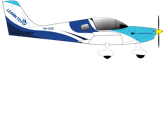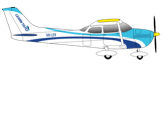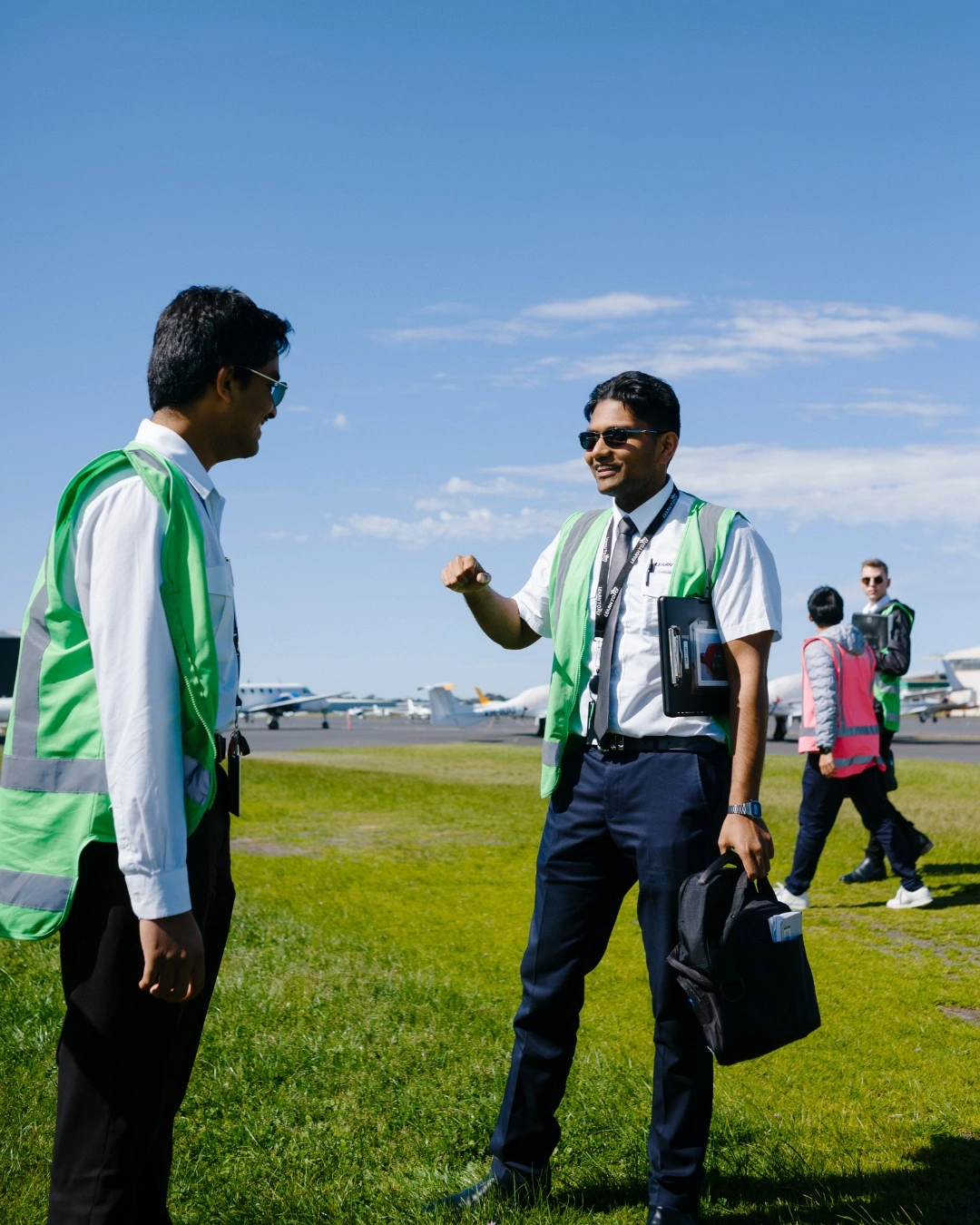
September 18, 2024
Human Factors and Aviation Psychology: Key Considerations for Solo Pilots
Aviation is not just about mastering the technical skills required to fly an aircraft; it’s also about understanding and managing the human factors that can significantly impact flight safety and performance.
For solo pilots, who operate without the immediate support of a co-pilot or crew, the psychological and physiological aspects of flying become even more critical.
Managing stress and fatigue during solo flights
Stress is an inevitable part of flying, especially for solo pilots who must manage all aspects of the flight themselves. Stress can stem from various sources, such as challenging weather conditions, mechanical issues, or unexpected air traffic. While a certain level of stress can enhance alertness and performance, excessive stress can lead to impaired judgment, slower reaction times, and even panic.
Strategies for managing stress:
Preparation: Thorough pre-flight planning can significantly reduce stress. This includes checking weather conditions, familiarising oneself with the flight route, and ensuring all necessary equipment is in working order.
Mindfulness Techniques: Techniques such as deep breathing and visualisation can help pilots maintain calm during stressful situations. Practising these techniques regularly can make them more effective during flights.
Rest and Nutrition: Ensuring adequate rest and proper nutrition before a flight can help mitigate stress. A well-rested pilot is better equipped to handle the demands of solo flight.
Fatigue is a major concern in aviation, contributing to many incidents and accidents. For solo pilots, the risks associated with fatigue are even greater, as there is no one else to take over if the pilot becomes too tired to continue safely.
Reducing fatigue starts with ensuring a full night’s sleep before flying. Flying while tired or sluggish can impair cognitive functions and slow reaction times, making it dangerous. It’s also important to plan for regular breaks during longer flights. Even a brief pause can help refresh and refocus the mind, enhancing overall safety. Lastly, staying hydrated is essential, as dehydration can exacerbate fatigue. Ensuring adequate hydration before and during the flight can help maintain energy levels and cognitive function.
Situational awareness and decision-making skills
Situational awareness refers to a pilot’s ability to accurately perceive and interpret the environment around the aircraft and make informed decisions based on that perception. It is a critical skill for solo pilots, as they must constantly monitor multiple variables—such as air traffic, weather, and aircraft performance—without assistance.
Enhancing situational awareness:
- Continuous Scanning: Regularly scan the instruments and the external environment to maintain a complete picture of the situation. This helps in detecting potential issues early.
- Stay Ahead of the Aircraft: Anticipate future situations and prepare for them in advance. This might include planning for a possible diversion or preparing for an expected weather change.
- Training and Experience: Experience is a key factor in developing situational awareness. Solo flight training in various conditions can help pilots build the skills necessary to maintain awareness in complex environments.
Effective decision-making is closely linked to situational awareness. Pilots must be able to assess the situation quickly and make sound decisions, especially when unexpected challenges arise.
One way to improve decision-making is through systematic risk assessment. Before making any decision, pilots should evaluate the potential risks and benefits. For example, deciding whether to continue a flight into worsening weather should involve a careful evaluation of the risks involved. Using checklists can also provide a structured approach to decision-making, ensuring that all necessary steps are considered and nothing is overlooked. It’s also important for pilots to stay calm under pressure, as high-pressure situations can lead to rushed decisions. Taking a moment to breathe and think through the options can result in better outcomes.
The importance of risk management in Aviation
Risk management is a cornerstone of aviation safety. It involves identifying potential hazards, assessing the risks associated with those hazards, and implementing measures to mitigate those risks. For solo pilots, who bear full responsibility for the flight, effective risk management is crucial.
The first step in risk management is hazard identification. This involves recognising potential threats, such as adverse weather, technical malfunctions, or even pilot fatigue. Once a hazard is identified, the next step is to assess the likelihood and severity of its impact on the flight. This assessment should guide decisions about whether to proceed with the flight or take preventive measures. Finally, mitigation strategies should be implemented to reduce the risks. This might include altering the flight path, delaying the flight, or ensuring additional pre-flight checks are conducted. By following these steps, pilots can significantly enhance the safety of their flights.
Personal limits
A key aspect of risk management is understanding and respecting personal limits. This includes knowing when you are too tired, stressed, or unwell to fly. Overestimating your abilities or ignoring personal limitations can lead to dangerous situations.
Practical tips:
- Know When to Say No: If conditions exceed your comfort level or experience, it’s better to delay or cancel the flight. Safety should always be the top priority.
- Continuous Learning: Engage in ongoing education and training to expand your knowledge and skills. This will help you recognise and manage risks more effectively.
Impact of personal factors on flight performance
Personal factors, such as emotional state, health, and stress levels, can significantly impact flight performance. A pilot’s ability to fly safely can be compromised by factors like illness, personal problems, or even overconfidence.
Managing personal factors involves conducting a personal check before each flight. Pilots should ask themselves whether they are in the right physical and mental condition to fly. If personal issues are affecting their ability to fly safely, seeking support from peers, mentors, or aviation professionals is advisable. Sometimes talking through a problem can provide the clarity needed to make safe decisions. Maintaining physical fitness and mental well-being is also essential for optimal flight performance. Regular exercise, a balanced diet, and mental health care should be integral parts of a pilot’s lifestyle.
Building confidence as a solo pilot
Confidence in flying comes with experience, knowledge, and preparation. For solo pilots, building confidence is essential for making sound decisions and handling unexpected situations effectively.
Building confidence involves practice, learning from mistakes, and setting realistic goals. The more you fly, the more comfortable you will become. Start with shorter, simpler flights and gradually increase the complexity of your flights. It’s also important to view mistakes as learning opportunities. Every pilot makes mistakes, especially in the early stages of their career. The key is to learn from these mistakes and use them as opportunities for growth. Setting achievable goals for each flight, whether it’s improving your landings or mastering a new navigation technique, will also boost your confidence.
Human factors and aviation psychology are critical components of safe and successful solo flying. By managing stress and fatigue, developing situational awareness and decision-making skills, prioritising risk management, understanding the impact of personal factors, and building confidence and proficiency, solo pilots can enhance their performance and safety. Whether you’re in the early stages of solo flight training or pursuing advanced qualifications like a diploma of aviation in Australia, mastering these key factors will be key to your success as a pilot.


